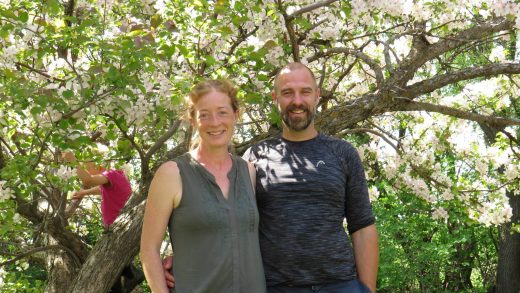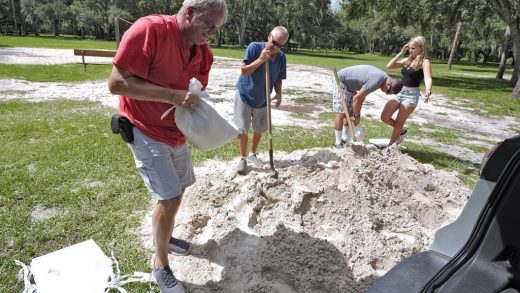
LAS VEGAS (AP) — Tesla won more than $330 million in tax breaks from Nevada on Thursday for the company’s commitment to a massive expansion of its sprawling vehicle battery facilities east of Reno, including construction of a new electric semi-truck factory.
Approval from the Governor’s Office of Economic Development came as Gov. Joe Lombardo cited the benefit of good-paying jobs and a nearly decade-long boost to the local economy around Tesla’s huge Gigafactory.
“Tesla has far exceeded every promise they made going back to 2014,” said Lombardo, a Republican who chairs the board made up of top state elected, education and business officials.
The deal is the latest to mark Northern Nevada as a focal point in the U.S. transition to green energy, as Democratic President Joe Biden’s administration seeks to move away from gas-powered vehicles in the larger fight against climate change.
Lombardo took office in January and has proposed a two-year state budget of $11 billion. He tweeted a photo of himself Jan. 24 with Tesla CEO Elon Musk at the industrial park east of Reno-Sparks and called the pending agreement “an incredible investment in our state.” Musk also owns Twitter and the rocket company SpaceX.
However, the $330 million figure remained secret until Monday due to a nondisclosure agreement between Tesla and state officials.
That drew complaints from some lawmakers in the Democratic-controlled state Legislature about having only three days to review a 20-year tax abatement.
“There is little to no opportunity to explore how this deal may affect housing supply, public schools, public safety, and other vital government services in the region,” Sen. Dina Neal said in a statement. The Democrat from North Las Vegas is chair of the chamber’s Revenue and Economic Development Committee. Neal did not immediately respond Thursday to messages seeking further comment.
Lombardo’s statement said Tesla has spent $6.2 billion on its existing 5.4 million square foot (501,676-square-meter) Gigafactory, which the governor said provided 17,000 construction jobs and more than 11,000 “highly paid permanent jobs.”
Tesla projects it will make another $3.6 billion capital investment, creating 3,000 new jobs at an average hourly rate of $33.49 with health insurance for 91% of its employees.
The company plans to add 4 million square feet (371,612 square meters) of production space at two new factories at the Truckee-Reno Industrial Center, about 20 miles (32 kilometers) east of Reno-Sparks along Interstate 80.
One plant will have capacity to produce batteries for 1.5 million light-duty vehicles a year, the company said. The other will have Tesla’s first production line for electric combination trucks. Musk has said the goal is a battery range of 500 miles (805 kilometers) when pulling an 82,000-pound (37,000-kilogram) load.
Public support for the deal came from the White House and Mitch Landrieu, Biden’s infrastructure chief; from University of Nevada, Reno President Brian Sandoval, a Republican who as Nevada governor approved an initial $1.3 billion Tesla abatement deal in 2014; and a preschool at the factory site that said it will expand its hours to accommodate workers.
Three elected lawmakers in rural Storey County, where the Tesla factory is located, lauded the economic benefit to the region. But they said the county of just 4,100 permanent residents deserves more tax revenue to support infrastructure and services including police, fire and EMS.
Tom Burns, executive director of the Governor’s Office of Economic Development, said in a statement that Tesla’s Gigafactory has propelled the state manufacturing industry and established lithium-ion batteries as the state’s eighth-largest export.
A Nevada-based recycling plant for electric vehicle batteries won a $2 billion green energy loan from the Biden administration in February.
On Wednesday, a federal appeals court refused to block construction of the largest lithium mine in the U.S., which is set to be dug in Northern Nevada, while the court considers claims by conservationists and tribes that the government illegally approved it in a rush to produce raw materials for electric vehicle batteries.


